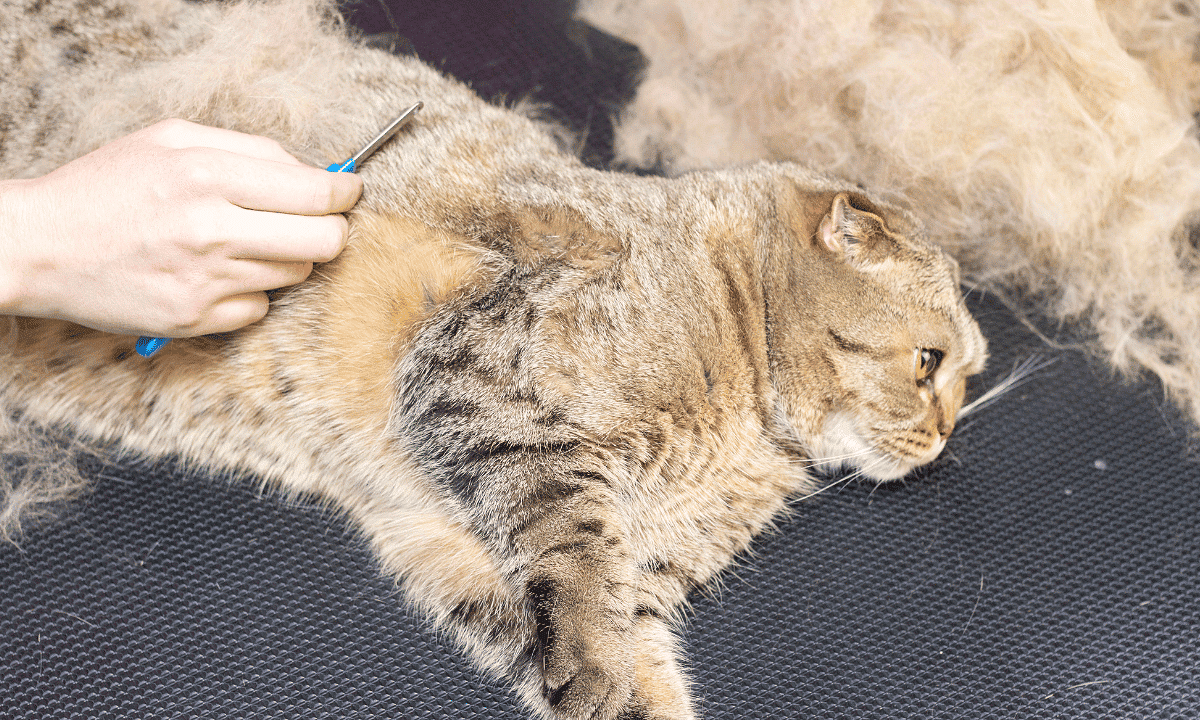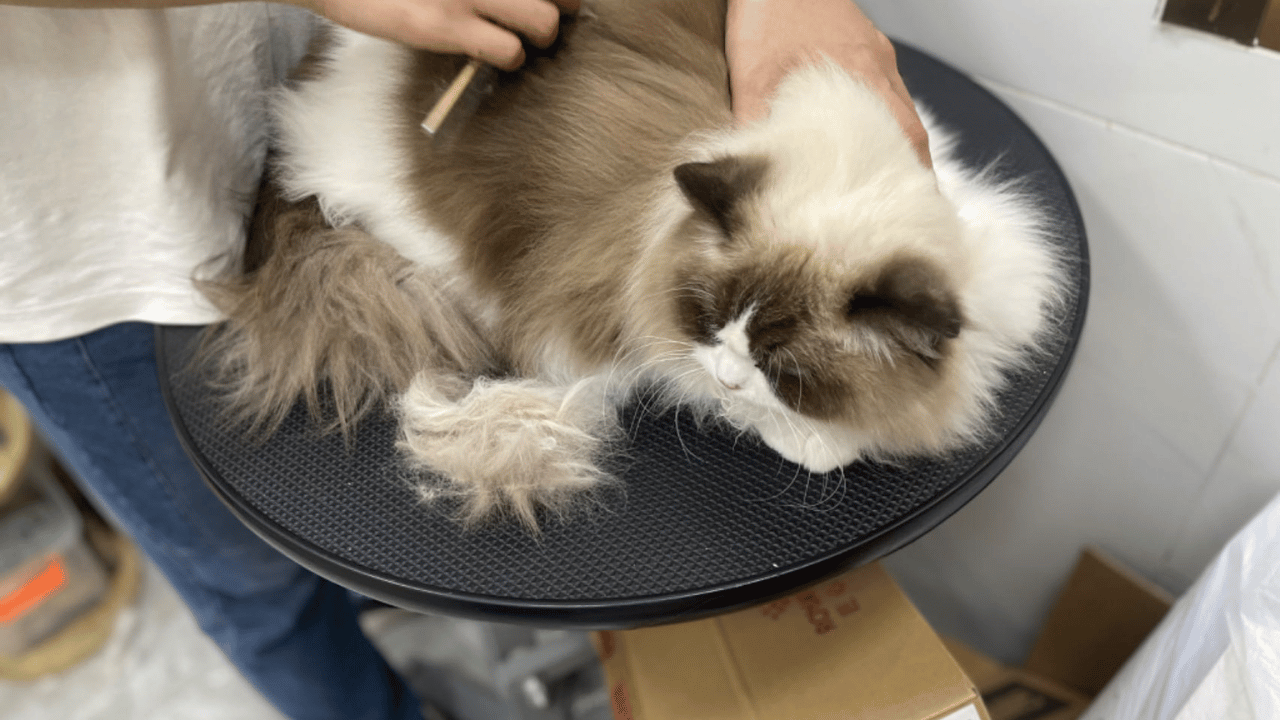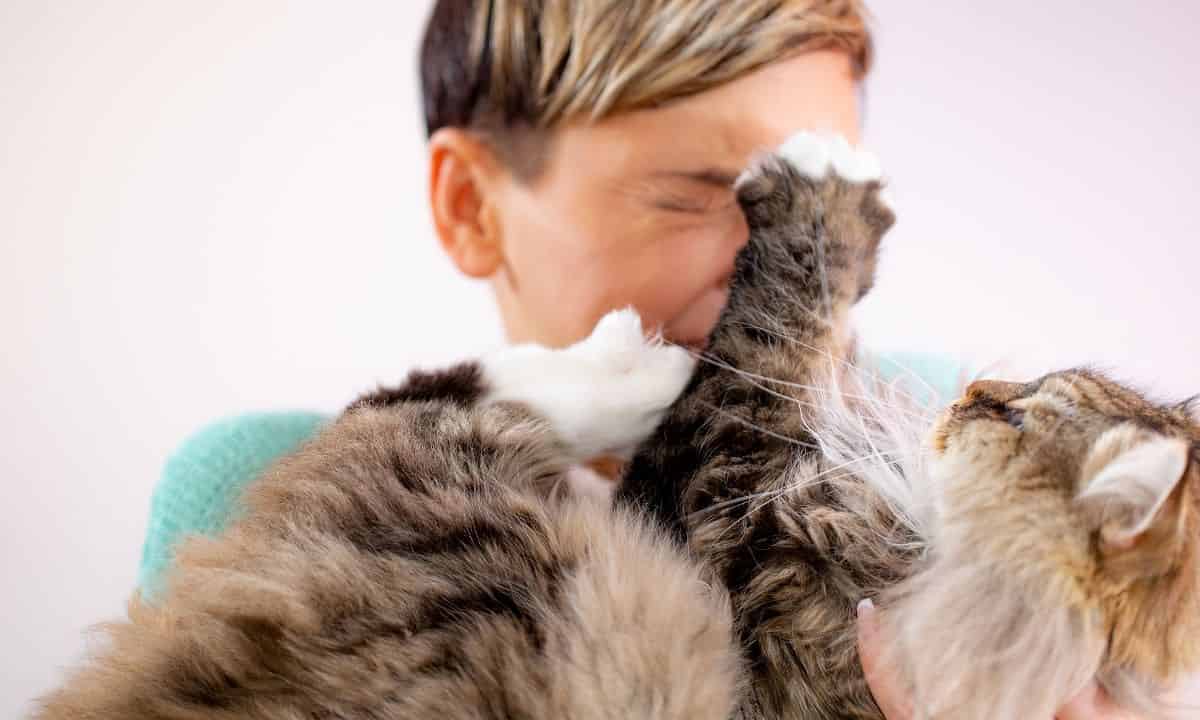Your Cart is Empty
Why Is My Cat Shedding So Much
by Dr. Rebecca MacMillan BVetMed MRCVS July 10, 2023

Why is my cat shedding so much? Many owners ask this question during their appointments with me, and there is not one straightforward answer to this.
There are many different reasons why a cat could be shedding excessively, including genetics, environment, stress, allergies, and skin infections, to name a few!
As an experienced veterinarian, I have seen many cases of excessive shedding over the years. Usually, something can be done to help these cats and their owners, but first, we need to figure out the underlying cause of their symptoms.
We will look at some common causes of excessive shedding in this blog and what you and your vet can do to help improve the situation. Read on to find out more!
IN THIS ARTICLE
What is excessive shedding?

All healthy cats will shed hair, but how do you know what is excessive or not?
If your cat has a healthy-looking coat with no bald patches or thinning areas, he is probably shedding usually.
As frustrating as it is, even healthy cats can leave lots of loose hairs around the house and on your clothes!
However, if there are any areas of sore-looking skin, excessive scurf (dandruff), or your cat is spending a lot more time than usual grooming, this could indicate an issue. If you still need clarification, then speak to your vet.
What are the causes of excessive shedding?

Genetics
Some breeds of cats have thicker coats and shed more than others!
Breeds notorious for needing lots of grooming include Persians, Maine Coons, and Ragdolls.
In comparison, low-shedding species include Bengals, Devon Rex, and Siamese.
Environment
Different times of the year affect the amount of shedding.
Many cats will shed in the spring, to lose their winter coat, and again in the autumn as they replace their summer coat with a thicker one for the cooler months.
Changes in daylight hours cause hormonal changes leading to this seasonal shedding.
Stress
Cats that are stressed may shed more than other cats.
They may also groom themselves more often, leading to thinning of their coat and areas of hair loss.
Ongoing causes of stress come in many forms for cats, including other pets in the house, building works, moving house, and the arrival of new family members.
Allergies
Cats with skin allergies can lose excessive fur due to overgrooming or developing secondary skin infections.
Most of the cats I diagnose with skin allergies can be effectively managed with the right combination of medication and lifestyle change (e.g., avoiding identified triggers and maintaining good preventative parasite protection).
Poor diet
If your cat is not fed a good-quality complete diet, this could affect skin and coat health, leading to hair loss.
Home-made diets should be avoided unless you have consulted with a veterinary nutritionist.
Skin infections
I have seen many skin infections that have led to hair loss in cats.
For example, ringworm (dermatophytosis) is a fungal infection that can cause bald patches and crusty areas of skin.
Bacterial infections can contribute to problems, too, though these are usually secondary to things like allergies.
Parasite infestations
Parasites like fleas and mites can make you think your cat is shedding excessively.
These cause excessive itchiness and overgrooming in some cases, which can cause thinning of the coat.
What can I do to reduce the amount of shedding?

Start by speaking to your vet. In my experience, issues are easier to deal with if owners seek early help.
This will allow the vet to rule out other underlying health conditions like ringworm or allergies.
Your vet can establish a treatment plan that should help improve your cat's symptoms.
If your cat is otherwise well, you may need to look at their diet and grooming regime.
First of all, make sure your cat is on a good-quality diet. Consider giving them a pet-specific supplement (rich in omega-3 fatty acids) to improve coat and skin quality.
Check out my other blog on reducing cat shedding here for tips on brushing, an essential part of managing shedding.
There is also some advice on handling stress in your cat if this is a factor.
Summary
As you can see, there are many reasons why your cat might be shedding excessively.
First, you must rule out underlying health issues with your vet, particularly if your cat has other symptoms like itchiness or sore skin.
If this has been addressed, you may need to look at your cat's environment to rule out stress and ensure they are on a good diet. Regular brushing will also help, not least to reduce the amount of hair in your home!
Leave a comment
Comments will be approved before showing up.
Also in Cat Grooming

What Kinds Of Brushes Should I Use On My Cats? Answers By Dr. Alisa Alden
by Dawson Smith June 20, 2024
Read More
How to Bathe a Cat Without Getting Scratched
by Dr. Holly Anne Hills BVM BVS BVMedSci May 13, 2023
The reality is that most cats hate water, so that that bath time can be tricky. Preparation is vital to ensure the process goes as smoothly as possible - minimizing stress to you and your cat and ensuring that no one gets hurt.
Read More